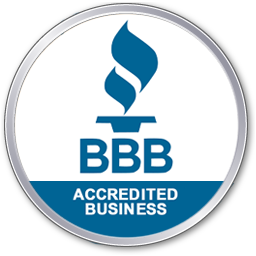Is There Asbestos in Your Home’s Floor Tiles?
Was your home or business built prior to 2004? If so, it’s likely that asbestos is present in your building.
Asbestos is a naturally occurring mineral that consists of millions of microscopic fibers. There are six different types of asbestos minerals, but all of them provide the same benefits and, ultimately, the same risks.
Prior to a 1989 partial ban by the Environmental Protection Agency (EPA), asbestos was one of the most commonly used construction materials for both residential and commercial buildings. It’s known for its ability to withstand fire, water and chemicals, which made it a durable (and cheap) option for building materials.
Asbestos was frequently used in a variety of construction materials, including (but not limited to):
- Floor, ceiling and roof tiles
- Insulation
- Siding materials
- Plaster
- Fireplaces
- Adhesives
- Cement water pipes
Unfortunately, a mineral that construction companies once thought would make homes safer through its fireproof nature comes with risks that outweigh the benefits. If asbestos-containing materials are disturbed, such as during renovations or demolitions, asbestos fibers can become airborne and be breathed in. This is problematic because asbestos exposure could impact the safety of the building’s occupants, contractors or neighbors.
Although materials containing asbestos are nearly nonexistent in today’s construction practices, many people still live in homes that were built with materials still containing asbestos fibers. Here, we’ll take a closer look at one of the most common asbestos-containing materials that may be present in your home or business: asbestos floor tiles.
How Old is the Flooring in Your Home?
The likelihood of your home’s floors containing asbestos is correlated with the age of your floors. If your floor tiles were installed prior to 2004, you should assume that they have asbestos unless asbestos testing indicates otherwise.
Asbestos floor tiles contained high concentrations of the toxic minerals and were heavily relied on from the 1950s-1980s. There are multiple types of floors that could contain asbestos, including vinyl sheets and tiles, laminate flooring, linoleum flooring and other tile types.
Even if your floor tiles don’t contain asbestos, they may have been installed with asbestos-containing adhesives. And if you have sheet flooring, the felt-like material that was used underneath to cushion the floor may contain asbestos.
Among the manufacturers that offered asbestos floors were:
- Armstrong
- Congoleum-Nairn
- Ever-Wear
- KenTile
- KenFlex
- Montgomery Ward
- Sears & Roebuck
Because of their prevalence in the mid to late 1900s, asbestos floors are more common in older homes. Even if your current flooring was installed after 2004, there is a chance it may be laying on top of older floor tiles that contain asbestos. This layering method is often used to avoid disturbing asbestos particles in the old floor to prevent them from becoming airborne.
If your asbestos floors are in good condition (meaning they are free of deep scratches, cracks or other damage), your risk of exposure to airborne particles is likely low. However, if you’re planning a renovation or demolition that may involve replacing your floors or sawing old tiles, you’ll need to have your floors tested for asbestos.
How to Tell if Your Floors Are Made of Asbestos
The only way to tell if your floors contain asbestos is to have a sample tested. Asbestos testing is required by Oregon’s Department of Environmental Quality (DEQ) when:
- You’re conducting a renovation or demolition project on a residential building built prior to 2004.
- You’re renovating or demolishing a commercial building, regardless of when it was built.
Because of the difficulty and safety risks involved in disturbing asbestos floors, asbestos testing should only be done by trained professionals. The Oregon DEQ strongly recommends hiring a licensed contractor for asbestos services to ensure they are knowledgeable and adherent to its rigorous safety standards.
During testing, a sample of your flooring material that is at least one square inch in size will be collected for analysis. The sample is then examined under polarized light to identify various species of asbestos particles that may be present on the inside. The results will let you know the percentage of your floor tiles that are made of asbestos to help you make informed decisions.
While testing is the only way to know for certain that asbestos is present, there are some visible signs that may give you a hint. These include:
- Black adhesive: Black mastic, which contains asbestos, was a common adhesive for gluing down floor tiles. If you see black glue underneath missing tiles, you will want to consult with an expert.
- Discolored floors: Asbestos can make floor tiles oily and greasy, which can cause them to change color.
- Tile size: Asbestos tiles were sold in 9-inch, 12-inch or 16-inch pieces.
If you encounter any of these signs, it’s best to have your floors inspected and tested.
Removing Asbestos Floors in Portland
If testing uncovers asbestos particles in your floors, you may choose to have them removed. This process is called asbestos abatement. Reasons for having your asbestos floors removed may include:
- Plans to restore wood floors that lay underneath asbestos floor tiles.
- Any renovation or remodel that will involve your floors.
Asbestos abatement should only be attempted by trained and experienced professionals due to the risks involved in a safe removal. The removal process should include a detailed plan that involves sealing air vents and areas that don’t require removal. Asbestos and affected materials are then removed, placed into sealed disposal bags and safely transported away.
Once your home or business is free of asbestos floor tiles and/or materials, the entire area (including the air) will be filtered and cleaned using specialized equipment. The final step is to have the air sampled to ensure the amount of asbestos particles that may have become airborne are within an acceptable range.
The professionals at Alpha Environmental are trained to inspect, identify and remove asbestos floors from both residential and commercial buildings. We take great care in ensuring the safety of your building and its occupants throughout the entire process. If you need asbestos testing or abatement services for your floors in Portland or Vancouver, Washington, contact us today to schedule an inspection!




